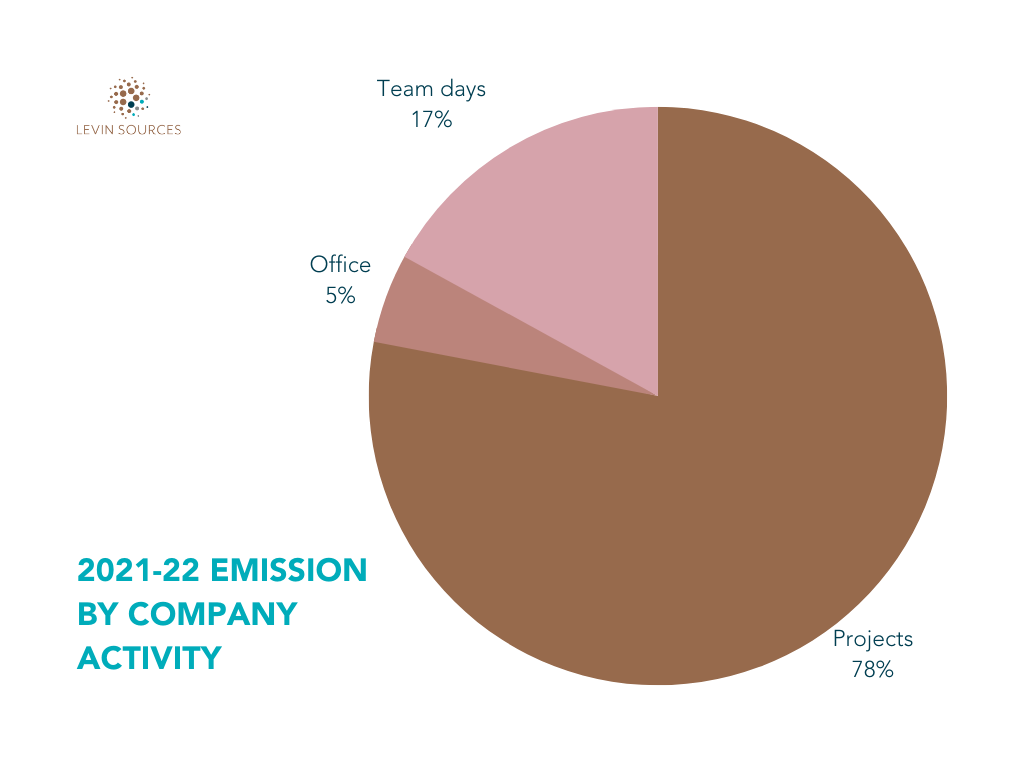Our third Carbon Footprint report, covering the financial year April 2021 – March 2022, is symptomatic of how the minerals and mining sector and world are reopening post-pandemic.
It also captures our progress in achieving our climate objectives as articulated in our environmental policy and thereby living up to our commitments as signatories to the Gucci CEO Carbon Neutral Challenge, the Cambridge Climate Charter and the Forest Declaration Platform (formerly the New York Declaration on Forests.)
2021/22 Carbon Emissions
With flights grounded because of COVID-19, our 2020-21 Carbon Footprint decreased by 96% compared with the previous year. As air travel reopened and our experts are again able to fly to key project sites, our emissions since increased ninefold over the 12 months period.
For the reporting period just closed, this number remains 60% lower per capita than our pre-pandemic baseline, partly thanks to our office move and increased deployment of local associates. As laid out in our Environmental Policy, we are looking to reduce our emissions to align them with the global carbon budget left to keep planetary warming below 2 or even 1.5 degrees and take into account historical emissions.

Our latest report also reflects our recent office move as more and more staff has been working from home. As we now retain a co-working space in the Cambridge area, office-related emissions represent 5% of our total footprint. However, this spread-out working model, which allows us to tap into international expertise, means that we sometimes need to come together in a central location, from multiple continents. Our Team Days now represent close to 17% of emissions.

Carbon offsets
As signatories to the CEO Carbon Neutral Gucci Challenge, we are committed to offsetting our emissions with an accredited scheme. For 2021-22, we calculated an offset cost of £540 and are offsetting through the Vanga Blue Forest Mangrove project in Kenya, supported by the Association for Coastal Ecosystem Services (ACES).
However, offsetting is only one of many ways to address the climate crisis and doesn't replace behavioural and systemic changes.
Going into this new reporting year, we are also completing our payments to the three charities we donated to last year to remediate our historical carbon debt: the POLE POLE Foundation, the Wildlife Trust BCN’s Flowering Fens project, and Guernsey for Freedom.



